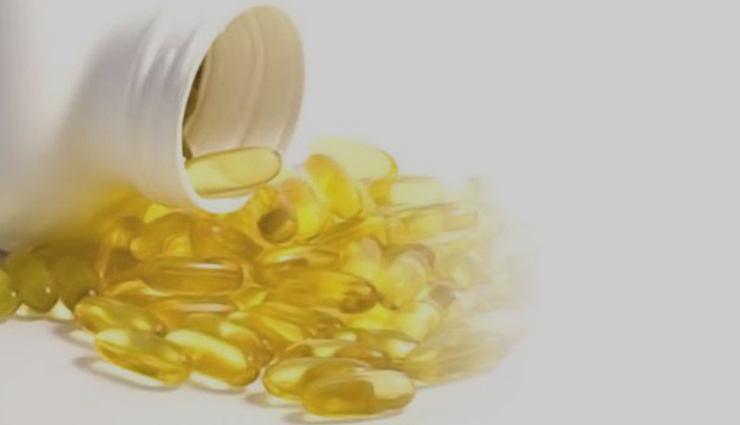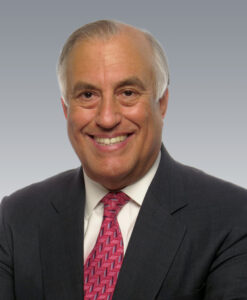Some exciting findings show how intake of CoQ10 supplements can help you enjoy better heart health and overall well-being. If you have a heart problem or are at risk for cardiovascular diseases, it is important to seek professional medical assistance to avoid any complications. You can make good choices in selecting the right supplements with the help of Dr. Steven Reisman at the New York Cardiac Diagnostic Center. The MD cardiologist will focus on your body condition and evaluate your heart health to provide the best advice regarding cardiovascular care.
Coenzyme Q10 has become the bestselling supplement for its heart health benefits. Studies suggest that CoQ10 can significantly affect heart health and decrease the risk from various life-threatening conditions, including heart attacks and strokes that are the leading causes of death.
What is Coenzyme Q10?

Also known as CoQ10, Coenzyme Q10 is an essential compound produced in the body that helps to generate energy in the cells. It is present in every cell as a fat-soluble, vitamin-like substance that converts food into energy.
Our body produces CoQ10, but its production and efficiency diminish with age. To keep the body fit and active for a long, you can obtain this essential nutrient through supplements or food. Research has revealed that CoQ10 has a wide range of health benefits for the young and the elderly.
CoQ10 is found in many foods, including organ meats, sardines, mackerel, chicken, cauliflower, broccoli, and asparagus, and protects the body against damage from toxic free radicals. Health conditions like heart disease, brain disorders, and diabetes have been associated with low levels of CoQ10 in the body.
Shortage of this essential antioxidant may lead to oxidative stress, increasing your risk of a range of disorders, including cardiovascular disease.
Different Forms of CoQ10?
There are two forms of CoQ10:
- Ubiquinone – it is the oxidized form that is converted into the reduced form ubiquinol in the body;
- Ubiquinol – is the active antioxidant form of CoQ10 that is produced in the body from ubiquinone.
As we age, the levels of CoQ10 in our bodies begin to drop. The amount of ubiquinone our bodies produce may start diminishing as early as after 20 years. Our body also loses its ability to make ubiquinol from ubiquinone that further complicates the problem. While dietary supplements containing ubiquinone are easily available, ubiquinol supplements, which are more advantageous for health, especially heart health, are not easy to find.
You must consult an expert heart doctor to find out how this energy-producing compound can help you deal with cardiac ailments in a different but effective way. The doctor will measure your CoQ10 levels with a simple blood test and determine the correct dosage depending on your body needs.
How Does CoQ10 Benefit the Heart?
Studies suggest that CoQ10 is beneficial for heart and related conditions, whether taken exclusively or combined with other therapies.
CoQ10 can help your heart in the following ways:
It prevents cardiovascular diseases – Studies have shown that coenzyme supplements can increase the HDL or the good cholesterol levels and ApoA1 levels, even in people who take statins and minimize the risk of cardiovascular diseases. CoQ10 supplementation also lowers inflammatory biomarkers that are a risk factor for heart diseases, such as high-sensitivity C-reactive protein. Low CoQ10 levels have been linked to tissue damage to the heart during a heart attack and brain during stroke.
It increases statin compliance – Even though statin therapy reduces heart attack and stroke risk to a large extent, many patients end up abandoning the treatment due to muscular ache, weakness, and other symptoms. CoQ10 supplements help to control the pain and other symptoms associated with a statin. Research has revealed that combining statin therapy with adequate amounts of CoQ10 can lead to better compliance with treatment.
Reduces the risk of heart failure – CoQ10 can reduce the risk of heart failure and improve the mortality rate resulting from heart disease. It can be used as a medicine that promotes heart health and helps in severe cases of heart failure.
Aids recovery after a heart attack – Research shows that patients who started on CoQ10 soon after heart attack showed a much lower rate of following cardiac events in the next couple of years than patients who did not receive any CoQ10 supplements. Treatment with CoQ10 is beneficial in patients with recent heart conditions, particularly those with a high risk of atherothrombosis, forming a blood clot within an artery.
Keeps high blood pressure in check – CoQ10 can keep the systolic blood pressure, the top number in the blood pressure reading, in control and ensures it does not lead to any serious problem.
CoQ10 also helps with blood sugar regulation. It reduces the frequency of migraines. As a compound that generates energy in your cells, CoQ10 has a wide range of health benefits for the brain and fights harmful compounds that could affect memory, cognition, and physical functions.
Schedule an appointment with your healthcare provider to know how to incorporate CoQ10 into your diet and live a better quality of life.
Key Facts About CoQ10
It should be taken with a meal – As CoQ10 is fat-soluble, it is best absorbed in the body when consumed with food.
All CoQ10 supplements are not the same – CoQ10 supplements are available in various forms and quantities. While ubiquinol, or the active form, is good for elderly people, younger people benefit more from ubiquinone.
CoQ10 levels should be checked before starting it – Measuring CoQ10 levels in the blood is the only way to determine if you need the supplements, and the doctor will get you tested before starting on a supplement.
Have your ‘HDL cholesterol’ checked – If your CoQ10 levels are low, your ApoA1 and HDL-C levels will likely be low too. Good cholesterol levels must be monitored as they play a significant role in decreasing the risk of coronary heart disease and atherosclerosis, and you may need CoQ10 in such a case.
Health Benefits of Coenzyme Q10
Other health benefits of CoQ10 include:
- It enhances the production of cellular energy and serves as an antioxidant;
- It delays the aging process;
- It helps in the preservation of cells and the prevention and treatment of various chronic diseases;
- It improves heart performance and keeps blood sugar in control;
- It reduces the frequency of migraines;
- It reduces the oxidative damage that leads to muscle fatigue, skin damage, and brain and lung diseases in the long run;
- It is well-absorbed in the body as it is present in foods like animal organs, vegetables, and legumes that are a part of the routine diet.
Ask your doctor about the CoQ10 and if it will work for you. As coenzyme production decreases with age, people of all ages can benefit by consuming foods with high CoQ10 content or taking a supplement.
Do not let advancing age and heart problems slow you down. Consult your doctor to find out how CoQ10 supplements boost your energy levels and give you a chance to enjoy a better quality of life. As a supplement that is well tolerated by most people, taking the CoQ10 supplement helps to fight aging and other related problems. Dr. Steven Reisman at the New York Cardiac Diagnostic Center uses the most advanced diagnostic methods to evaluate your heart condition and recommends effective treatment and management plans that ensure long-term health and wellness.

Dr. Steven Reisman is an internationally recognized cardiologist and heart specialist. He is a member of the American College of Cardiology, American Heart Association, and a founding member of the American Society of Nuclear Cardiology.
Dr. Reisman has presented original research findings for the early detection of "high risk" heart disease and severe coronary artery disease at the annual meetings of both the American College of Cardiology and the American Heart Association. Dr. Reisman was part of a group of doctors with the Food and Drug Administration who evaluated the dipyridamole thallium testing technique before the FDA approved it.
Dr. Steven Reisman's academic appointments include Assistant Professor of Medicine at the University of California and Assistant Professor at SUNY. Hospital appointments include the Director of Nuclear Cardiology at the Long Island College Hospital.



